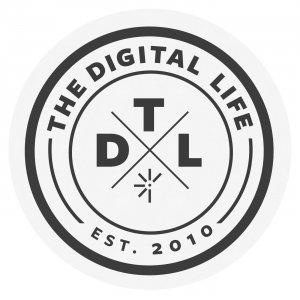The Digital Life

Hacking the DNC
Jon: Welcome to episode 166 of The Digital Life, a show about our insights into the future of design and technology. I'm your host, Jon Follett, and with me is founder and co-host, Dirk Knemeyer.
Dirk: Hey, Jon.
Jon: Hey, Dirk. We have an exciting episode for you this week. We're going to be talking about one of our favorite topics, cyber warfare, propaganda and in this case, this week, the release of the DNC's emails on WikiLeaks by what some security experts have indicated to be Russian hackers. Of course, that's as yet unsubstantiated but there is suspicion anyway that the hackers who released this very sensitive information were of Russian origin.
Why is this issue coming to the fore now? Well, cyber warfare, generally speaking, has been developing in some really significant ways over the past year, excuse me. We've had elements like the Sony hack, of course the Snowden revelations about the NSA and also, just relatively recently, the Panama Papers, which highly embarrassed what we'd call the 1%, the uber-wealthy who were sheltering their funds in overseas bank accounts.
Being in power isn't what it used to be or it's not as nice as it used to be when hackers can reveal all your secrets to the public and start to change or sway public opinion by revealing dirty secrets.
Dirk: Transparency is messy, Jon.
Jon: Yes, and even more so for the DNC, this is an ill-timed hack to say the least because this is supposed to be the high watermark for the Clinton campaign accepting the Democratic nomination this week and of course, they have to deal with this treasure trove of embarrassing secrets, whether it's about the way the party finances itself, the way it conducts its strategy, especially around the campaign of Bernie Sanders versus Clinton, the supposed neutrality of the DNC was revealed to be completely false and they were very much backing Clinton throughout. This is a very sensitive set of emails that has been proven to be highly embarrassing for the Democrats.
Ultimately, what I wanted to get to is how much this is a small group of very talented digital knowledge workers who are able to create this level of chaos and we talk about their creative class, of which I consider us a part because we use digital tools to create things like software. There's the flip side to that, which is it's another kind of creativity but you could even label it the destructive class, those who take these same digital tools, write code in this case or whatever the elements were that created this hack and revealed all this information. They use it for things that are essentially weaponized information.
WikiLeaks has proven to be a very useful tool for this kind of information, and ultimately, the Digital Life has enabled small groups of people, acting independently, to have large amounts of power and to disrupt those people in power. I know I touched on probably about 5 or 6 different things, Dirk. What's your first pledge to this?
Dirk: I mean welcome to the world of digital information, where nothing is private or secret anymore. We should assume that everything we do online, that everything we do in a digital capacity is going to get out there. We just act as though that were the case first and foremost, because at some point, sooner or later, it probably will, one way or the other. For me, I don't know, Jon, this whole story for me is a shrug, and I say that from the perspective that I take for granted the DNC stacking the deck for Clinton over Sanders. I take for granted that the Russian government is interested in steering our election in a way that is better for them. I take for granted that the Russian government and/or hackers funded by or related to the Russian government are able to penetrate what are probably paltry defenses of the DNC.
There's no aspect of this story that surprises me. The only thing that's interesting about it is now everyone knows, and other people are shocked.






 Visit Podcast Website
Visit Podcast Website RSS Podcast Feed
RSS Podcast Feed Subscribe
Subscribe
 Add to MyCast
Add to MyCast